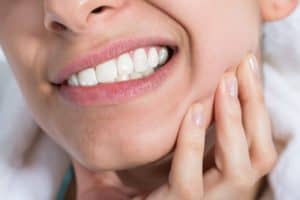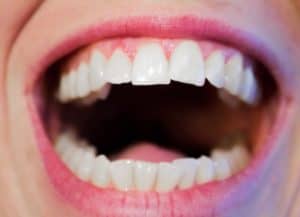You might have found yourself in a situation where you find yourself grinding your teeth, either consciously or not. This type of behavior not only brings unnecessary stress on our mouth and neck area but also can shape our mouth and give way to other complications.
We have spoken with Los Algodones dentists about what causes this behavior and what we can do in order to stop it. As it turns out, it just need a little bit of dedication and willigness!
What is tooth grinding?
Tooth grinding might also be known as bruxism, which is essentially when we press our teeth together, we clench them. Usually, tooth grinding is done when people are subjected to stress and anxiety as a coping mechanism. But interestingly enough, it can also happen while w e sleep!
This usually leads to symptoms such as pain in the neck, jaw and face area, as well as stiffness. Failing to deal with this can lead to long term issues such as severely worn down teeth, shifting of the teeth’s position due stress, tooth sensitivity and more.
What causes tooth grinding?
There are a lot of factors out there that can aid this dreadful behavior. Some of the most common ones are coffee, alcohol, smoking, stress, depression and anxiety, as well as some sleep disorders.
It is important to be careful when we indeed clench our teeth and start grinding them. Even more so if the person wears braces, as the added tension on the teeth can be fatal.
How do I know if I am grinding my teeth in my sleep?
There are some clues as we wake up that can tell us if we are doing it or not. Pain on our teeth, a stiff jaw, neck pain.. things like that! But otherwise there is no clear indicator other than visiting a dentist.
Los Algodones dentists tell us that too much tooth grinding harm the enamel, and as such, make the teeth look flat. So this is one of the signs that a professional dentist can pick up in order to let you know.
Is using a mouth guard good against bruxism while sleeping?
A mouth guard does indeed protect the teeth, but it can worse the sleep schedule. Usually bruxism stems from sleep disorders such as sleep apnea, where the sleep is often interrupted and causes snoring.
For this reason using a mouth guard or retainer can be 50/50. As long as it does not mess with your sleep, then it is okay.
How to stop bruxism
Here are some tips that might help you be more conscious and tackle the issue:
- Be on the lookout for signs that you are indeed clenching your teeth regularly. Grab any signs, tell a friend to help you, anything goes.
- Know just what situations put you in that state. Stress at work, anxiety before a meeting, a bad temper or engaging on a specific activity can be triggers.
- Calm and soothe yourself with music, reading or anything that puts you at ease.
- When you feel like clenching your teeth together, put your tongue in between them. This way you won’t be able to and in time you will get used to using this alternative.
- Visit a dentist for guidance. A professional with years of experience at their job will do everything they can to give you the helping hand you need.
Many are the people that have trouble one way or another with their teeth. So if you are looking for the best dentists and the best prices, we recommend visiting Los Algodones. You are most welcome giving us a call or sending us an email and we will get right back at you with all the information and answers you need.
